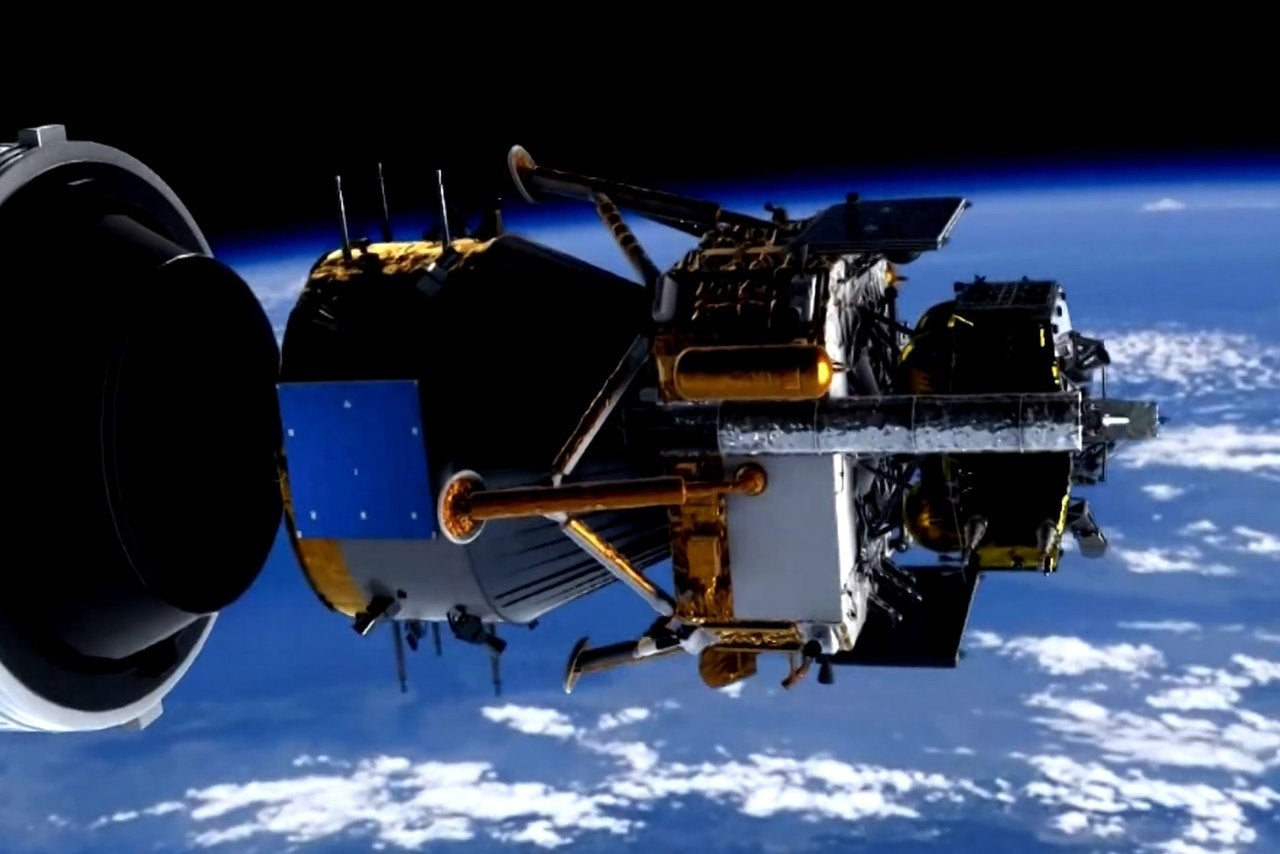China probe finds first on-site evidence of water on the Moon
It is thought that the water in the Moon’s soil came from hydrogen sent over by solar winds

China’s lunar lander has sent back the first on-site evidence of water on the Moon.
The Chang’e-5 lander first arrived on the Moon at the end of 2020, with the task of photographing its landing area, mapping conditions blow the surface, and analysing lunar soil for minerals and water content.
It was previously thought that the surface of the Moon was entirely dry, but last decade scientists confirmed the presence of water on its surface.
The lander specifically detected signs of water molecules, or those of the similar chemical hydroxyl. While water is made up of two hydrogen atoms for every oxygen atom, hydroxyl only has one hydrogen atom.
“It’s like a ‘field trip’ out on the Moon, the first opportunity to detect signs of water at close range and high resolution on the lunar surface,” said Lin Honglei from the Institute of Geology and Geophysics at the Chinese Academy of Sciences, as reported by the South China Morning Post.
Most of the water in the Moon’s soil is thought to be the result of solar wind, pushing hydrogen atoms onto the surface of the celestial body to then reach with the oxygen in its minerals.
The water concentration is approximately 120 grams for every tonne of lunar soil, while lunar rocks gave a slightly higher concentration – 180 grams per tonne. Researchers believe this could be because the rock originated below the surface, where there could be further sources of water. The research has been published in Science Advances.
As well as evidence of water on the Moon, the lander has also revealed its surprisingly recent volcanic activity.
Subscribe to Independent Premium to bookmark this article
Want to bookmark your favourite articles and stories to read or reference later? Start your Independent Premium subscription today.

Join our commenting forum
Join thought-provoking conversations, follow other Independent readers and see their replies